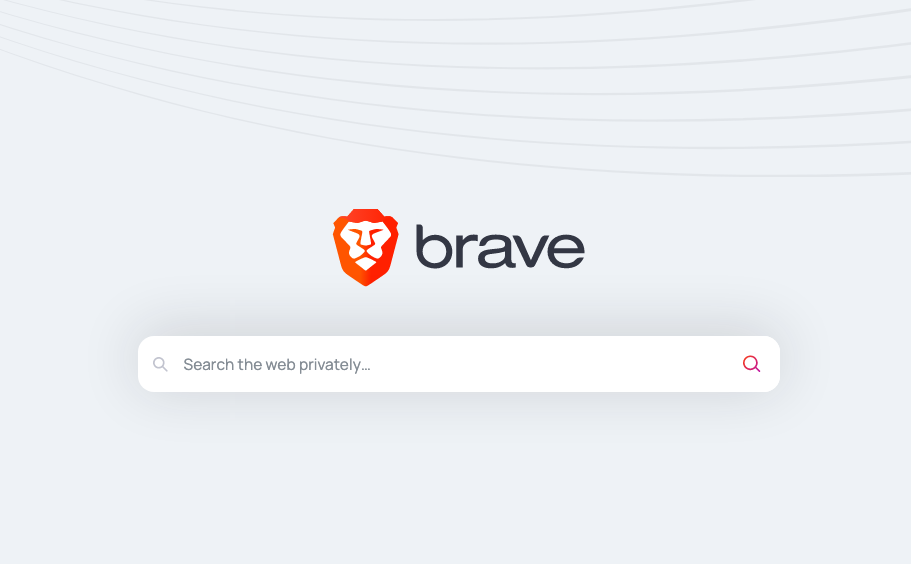12 Free Search Engines Alternative to Google
Table of Content
A search engine is a software system that is designed to carry out web searches, which means to search the World Wide Web in a systematic way for particular information specified in a textual web search query. The search results are generally presented in a line of results, often referred to as search engine results pages (SERPs).
Google is still number 1 Search engine
Google is currently the most widely used search engine, holding a significant share of the search market. This is largely due to the precision and speed at which it provides relevant search results. Google's search algorithms are highly sophisticated and constantly evolving, ensuring that users find what they're looking for as quickly as possible. Furthermore, Google offers a comprehensive suite of tools and services, like Google Maps, Google Images, Google News, and Google Drive, that enhance the user experience.
Why you may need to try another Search engine?
However, while Google is an excellent tool, there may be reasons to consider alternative search engines. Privacy is a primary concern for many users, as Google collects a substantial amount of data about its users' search habits. Alternative search engines often have stronger privacy policies and may not track user data in the same way.
Additionally, some users might find that other search engines provide different perspectives or more relevant results for certain queries. This can be particularly useful for academic or professional research. Each search engine has its unique strengths and weaknesses, and the best one for you depends on your specific needs and concerns.
1. DuckDuckGo
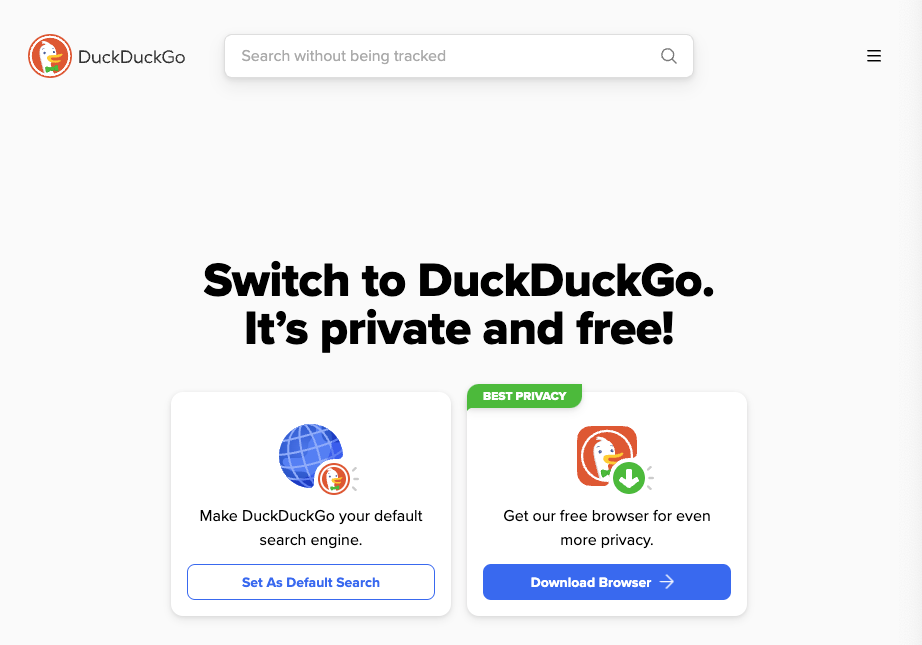
DuckDuckGo is a privacy-focused search engine that was founded in 2008 by Gabriel Weinberg. Unlike other search engines that track user activities to personalize search results and advertisements, DuckDuckGo prioritizes user anonymity and data protection, and does not store any personally identifiable information or create user profiles.
It distinguishes itself by emphasizing privacy as its core principle. The search engine provides unbiased search results by avoiding the filter bubble effect, where search algorithms prioritize personalized content based on user data.
Key features of DuckDuckGo include privacy protection, as it does not track users or collect personal information, ensuring that searches remain private and anonymous. It offers instant answers directly within search results from sources like Wikipedia, official sites, and other trusted databases. Users can utilize "bangs" (!) to directly search specific websites or services from DuckDuckGo's search bar.
Additionally, DuckDuckGo utilizes HTTPS encryption by default, ensuring secure connections between users and websites, and features a clean and user-friendly interface.
DuckDuckGo also engages with its community, supports open-source projects, and encourages transparency in its operations. Overall, DuckDuckGo appeals to users seeking privacy-conscious alternatives to mainstream search engines, offering a reliable and secure search experience.
2. Yandex

Yandex, a Russian multinational company, is renowned for its search engine, Yandex Search. Established in 1997 by Arkady Volozh and Ilya Segalovich, it has evolved into one of Russia's leading tech companies, offering a wide array of services such as online advertising, e-commerce, and cloud computing, in addition to its search engine.
Yandex Search is distinguished by its pertinent search results across diverse categories and its local proficiency in catering to users in Russia and neighboring countries. The platform offers numerous additional services like Yandex Maps, Mail, Translate, Disk, and Browser.
It uses personalization techniques to enhance search results and places a high emphasis on privacy and data security. Yandex is committed to innovation, incorporating features and technologies such as machine learning and artificial intelligence to augment search accuracy and user experience.
3. Perplexity.ai

Preplexity.ai is a fairly new search engines aim to distinguish themselves by offering unique features, such as enhanced privacy, specialized content indexing, or innovative search algorithms.
You may consider it an AI-based Search engine that enables its users to confirm their personal queries into a rich result set of links and resources.
4. Presearch.com

Presearch.com is a unique platform that combines the utility of a search engine with the benefits of decentralization and blockchain technology. Founded in 2017 by Colin Pape, the primary mission of Presearch.com is to offer an alternative to traditional search engines, with a focus on privacy, transparency, and user rewards.
A major distinction of Presearch.com lies in its decentralization. Unlike conventional search engines that operate on centralized servers, Presearch.com operates on decentralized nodes. This not only ensures a high level of transparency but also minimizes the reliance on single entities, which is often a concern in the centralized model.
Another key feature of Presearch.com is its strong emphasis on user privacy. In a time when data privacy has become a global concern, Presearch.com stands out by limiting its data collection practices. The platform does not track users' search history or personal information, offering users peace of mind about their online activities.
Presearch.com also introduces a novel way of rewarding its users. Users can earn cryptocurrency tokens, known as PRE tokens, simply by performing searches on the platform. These tokens can serve various purposes within the Presearch ecosystem or can be exchanged for other cryptocurrencies, providing a tangible benefit to regular users of the platform.
Community governance is another integral part of Presearch.com. The platform allows its users to participate in important governance decisions, such as voting on proposals and contributing to the development of the search engine. This fosters a sense of ownership and community among users, as they can have a say in how the platform evolves.
Finally, Presearch.com provides customization options to its users. Users can select their preferred search engines and add-ons, allowing for a more personalized and satisfying search experience.
5. Qwant
Qwant, a privacy-focused search engine founded in France in 2013, prioritizes user privacy, security, and neutrality in search results. Key features include privacy protection, unbiased search results, security measures, multi-source search, customization options, and compliance with European Union regulations on data protection and privacy.
It appeals to users seeking online privacy and reliable, diverse search results.
6. Bing

Launched in 2009, Bing is not just a search engine, but a robust Microsoft product that provides users with exceptional relevance in search results across web pages, images, videos, and maps. Expertly designed to integrate with a host of Microsoft products and services, Bing offers features like seamless integration with Windows, Edge browser, and Microsoft Office applications.
While Google may lead the market, Bing commands a loyal user base, especially in regions where Microsoft products are a staple. As per the most recent data, Bing confidently holds a steady 3-5% of the global search engine market share, serving millions of satisfied users worldwide who value its unique features and integration with the Microsoft ecosystem.
7. Brave Search
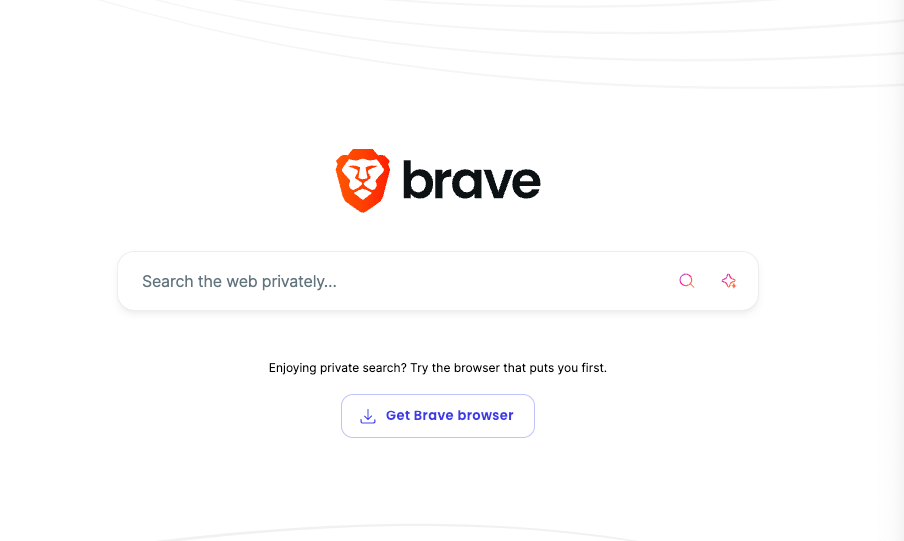
Brave Search doesn't just provide a new search engine—it revolutionizes the search experience with an unwavering commitment to privacy and transparency. Launched by Brave Software, the renowned name behind the privacy-centric Brave web browser, Brave Search is a game-changer.
Unlike conventional search engines, Brave Search is built on a privacy-focused foundation, ensuring users aren't tracked or profiled. It's a breath of fresh air in a world where data privacy is often compromised.
But it doesn't stop there. Brave Search employs a decentralized approach, combining community-driven algorithms with a clear separation between search functionality and advertising. This innovative model guarantees users access to neutral and relevant search results, untainted by the influence of personalized ads or data tracking.
8. Swisscows
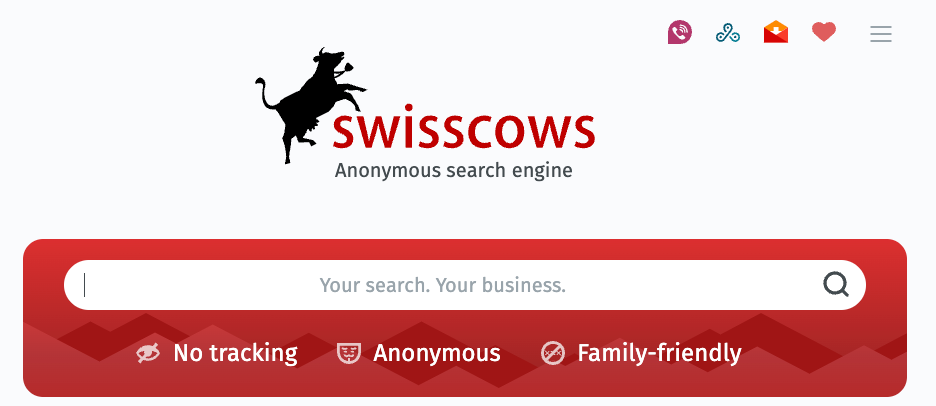
Swisscows is a privacy-focused search engine from Switzerland, promoting user privacy and family-friendly content since 2014. It doesn't track users or store personal data, ensuring anonymous searches.
With semantic technology, Swisscows provides intuitive search results and filters explicit or harmful content. It's a good choice for those wanting a safer online experience. Swisscows adheres to Swiss data protection laws, offering a trustworthy alternative to mainstream search engines, prioritizing privacy and user safety.
9. Baidu

Baidu is a leading Chinese search engine and technology company founded in 2000 by Robin Li and Eric Xu. Often referred to as "China's Google," Baidu dominates the search engine market in China with a vast array of online services, including web search, maps, cloud computing, and artificial intelligence.
Baidu's search engine is tailored to meet the needs of Chinese users, providing localized content, language support, and integration with various online platforms.
Known for its robust AI capabilities, Baidu continues to innovate in areas like voice recognition, natural language processing, and autonomous driving technology, making it a major player in both the search engine and tech industries globally.
10. MetaGer
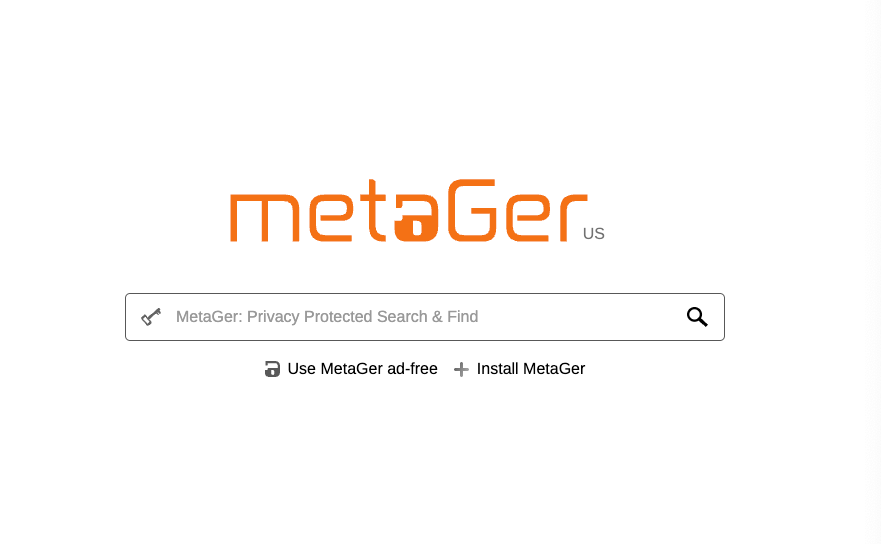
MetaGer stands as a formidable privacy-centric search engine, masterminded by the German nonprofit, SUMA-EV. Since its inception in 1996, MetaGer has unwaveringly championed user privacy, refusing to store personal data, including IP addresses, and offering unparalleled anonymous search capabilities. It harnesses search results from an impressive array of sources, including Bing, Yahoo, Wikipedia, and its own robust web index.
Not only does MetaGer ardently support open-source initiatives, but it also embodies transparency in its operations, inviting users to delve into its source code and contribute to its evolution.
What truly distinguishes MetaGer is its unyielding commitment to privacy protection and its resolute non-commercial stance, guaranteeing users an anonymous web search experience, free from data tracking or targeted advertising. For those seeking a secure, private search experience, MetaGer emerges as the definitive choice.
11. Searx
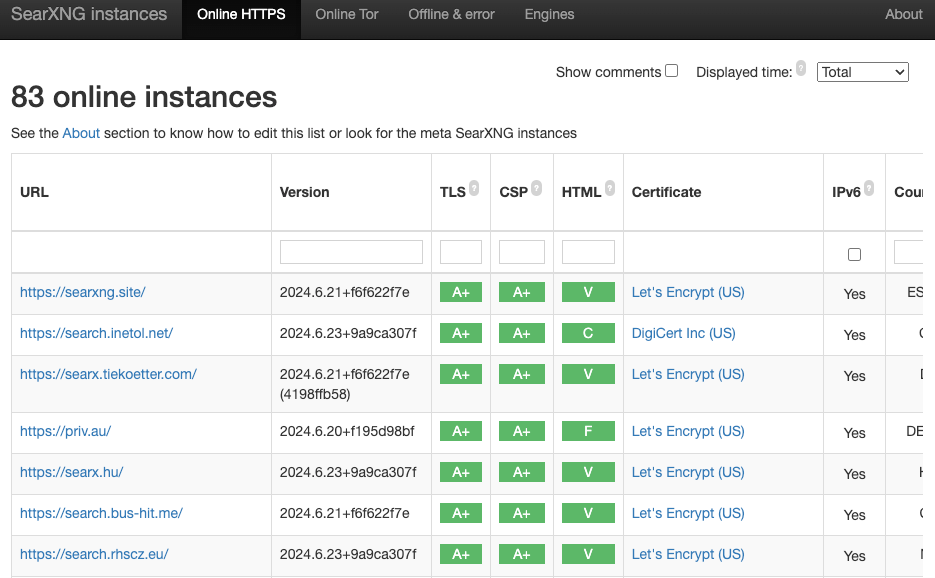
Searx is an open-source metasearch engine that aggregates search results from various other search engines while prioritizing user privacy and transparency. Unlike conventional search engines that track user behavior for targeted advertising, Searx does not collect any user data, ensuring complete anonymity during searches. This privacy-focused approach is a significant advantage for users concerned about online privacy and data security.
One of the key benefits of Searx is its decentralization and self-hosting capabilities. As an open-source project, Searx allows users to deploy their own instances of the search engine on private servers or cloud services. This self-hosting option gives users full control over their search environment, ensuring that no third-party entities have access to their search queries or personal information. It also reduces reliance on centralized search engines, offering a more independent and secure search experience.
Moreover, Searx offers customization options that cater to individual preferences. Users can select which search engines Searx queries for results, adjust filters to refine search queries, and customize the appearance and functionality of their instance. This flexibility allows users to tailor their search experience to their specific needs while maintaining privacy and data autonomy.

12. Internet Archive
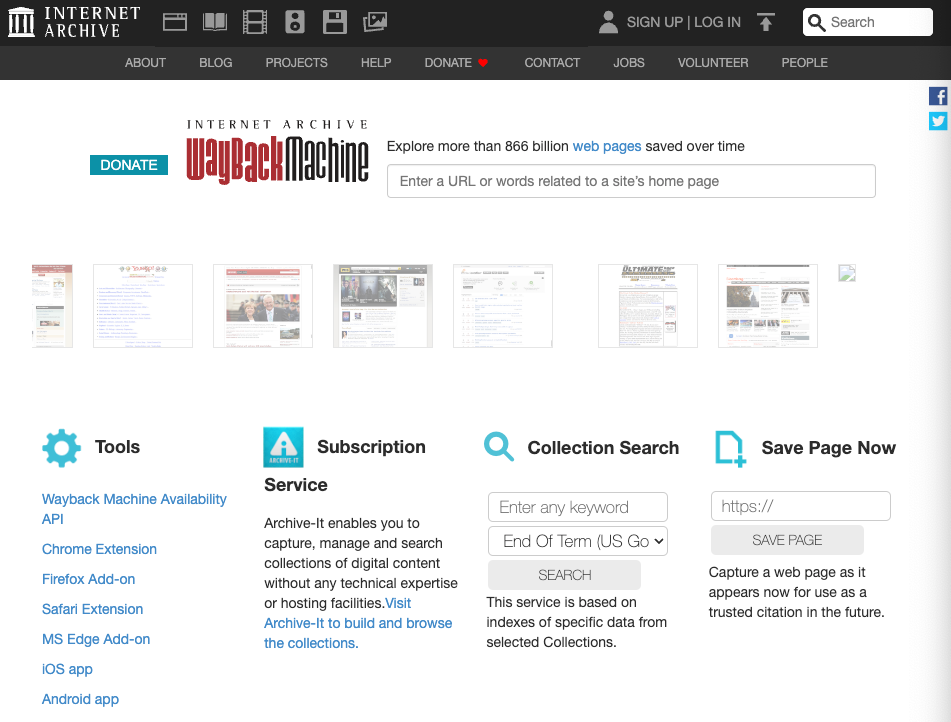
The Internet Archive, established in 1996 by Brewster Kahle, is best known as a digital library but also provides a unique search engine feature, the Wayback Machine. This specific tool allows users to explore archival records of web pages from the internet's early days, giving a historical perspective on the evolution of websites and online content.
Unlike conventional search engines that index current web content, the Wayback Machine stands as a valuable resource for research and nostalgia. It enables understanding of online content development and technological advancements over time, emphasizing the Internet Archive's commitment to digital content preservation and public accessibility.
Read More
